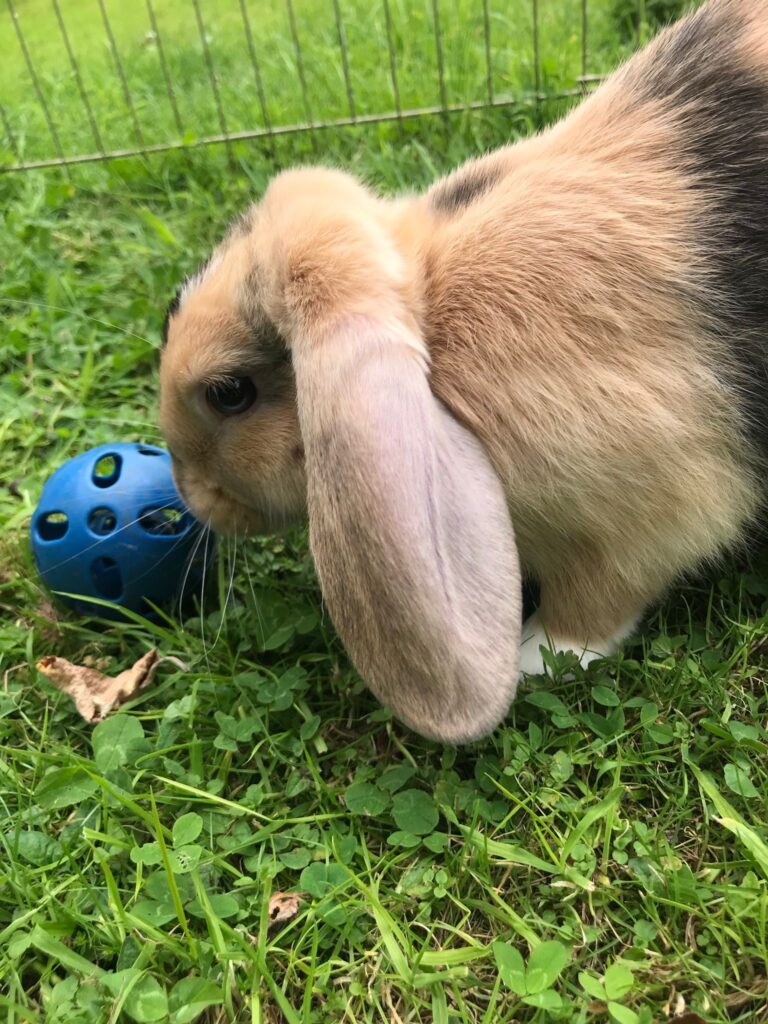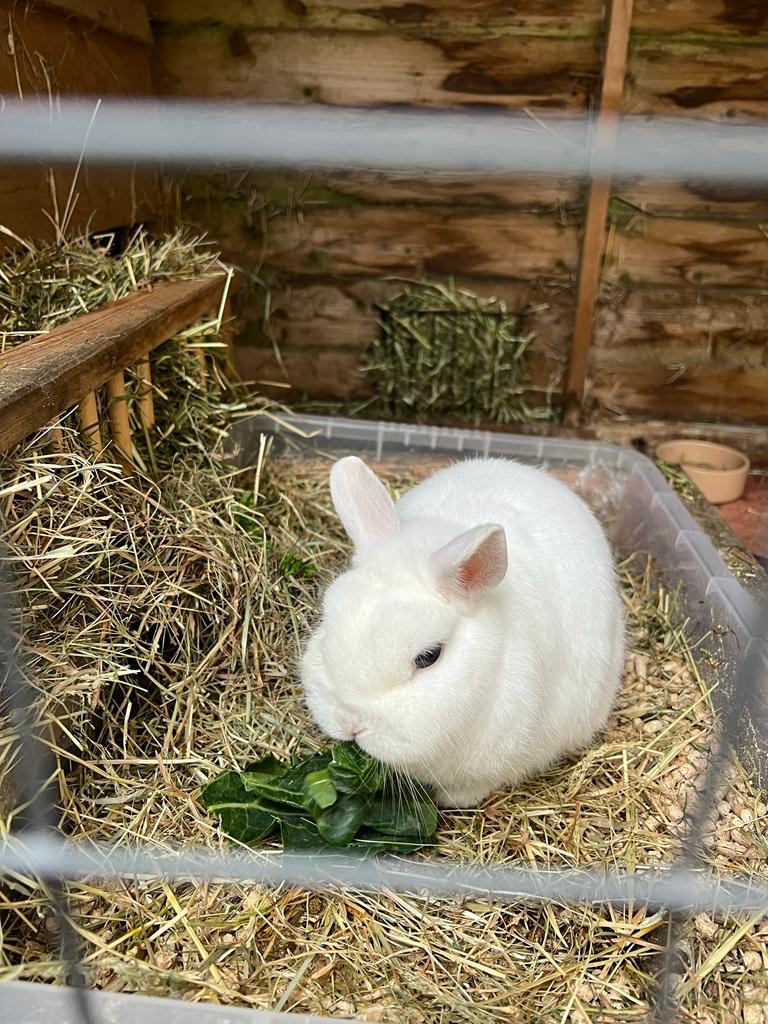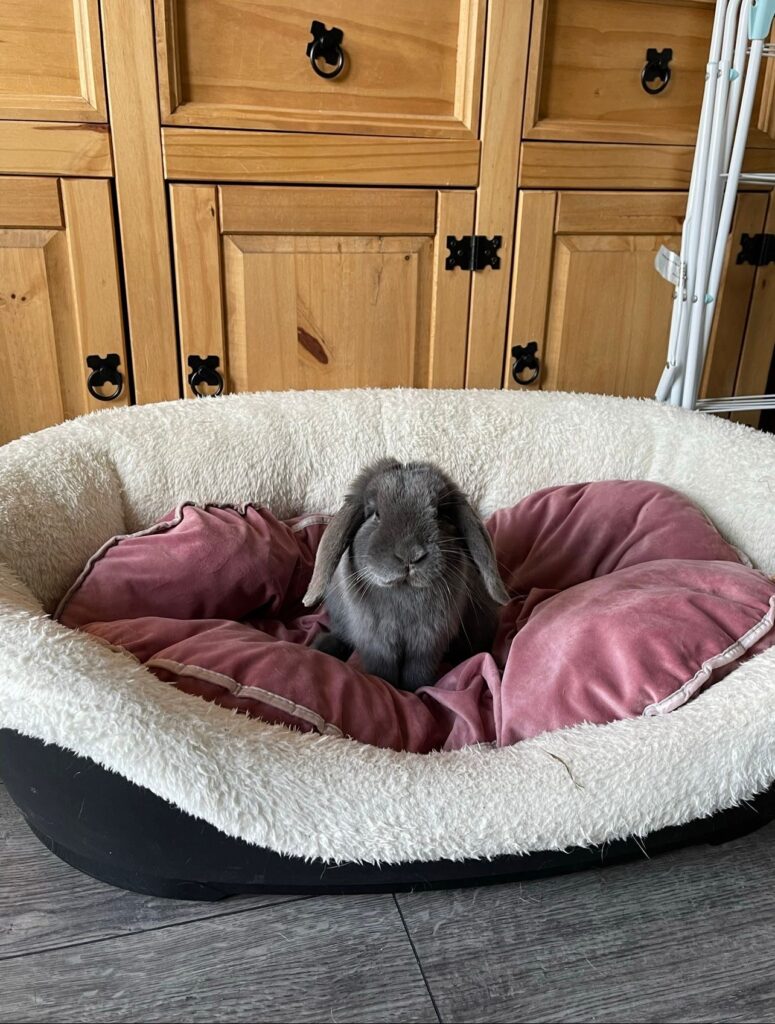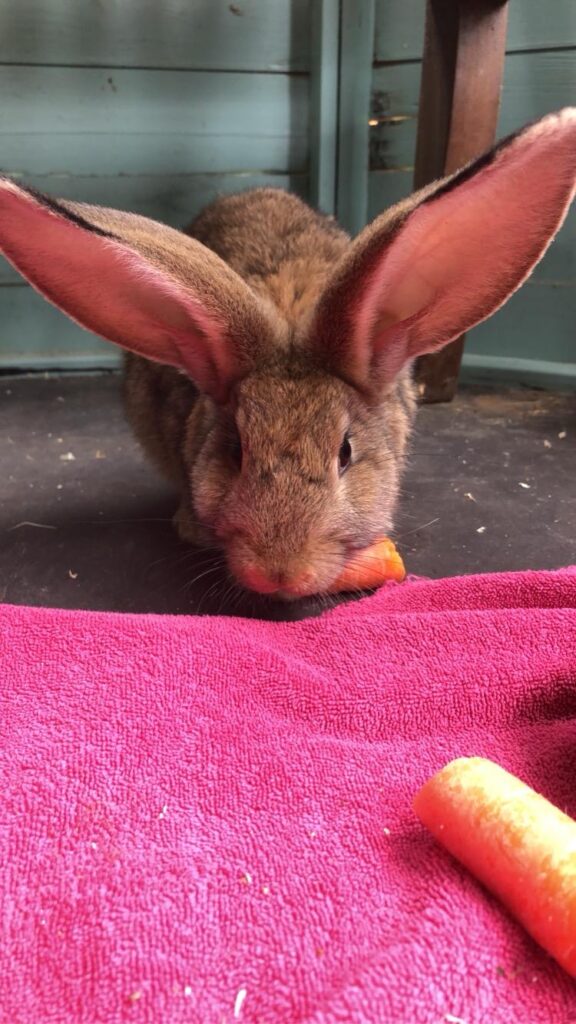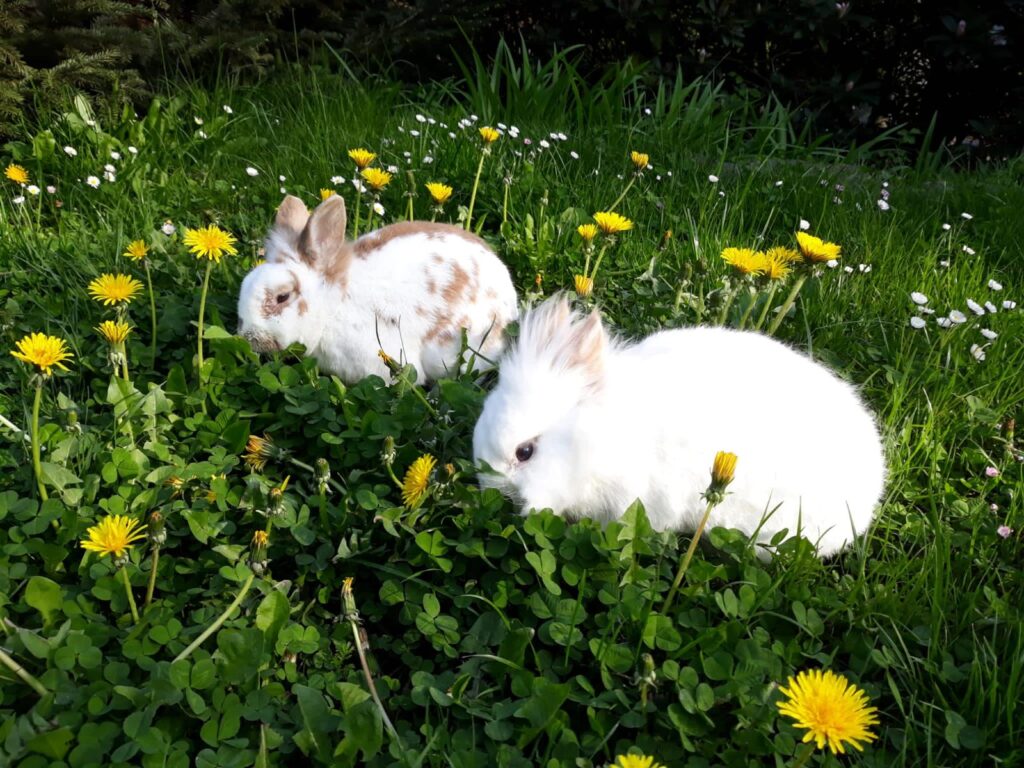How much do you know about the Easter Bunny?
Rabbits can make lovely pets, but you do need to provide special care for them and they are a big commitment. Whether you already have a rabbit or are thinking about making an addition to your family, here is some important information about keeping them happy and healthy.
Rabbits are highly sociable animals and require a lot of interaction. Rabbits should live in at least a pair or can live in a group but they can also be very sociable with humans. Like pet cats and dogs, rabbits can be microchipped, should be vaccinated and be groomed daily, however their dietary needs are very different as rabbits are herbivores. Rabbits need a lot of space to run, hop, play and binky!
DIETS
Rabbits’ diets are very important as if it is not correct then they can be prone to problems such as dental disease, gut stasis and obesity. 85% of their diet should be fresh hay and your rabbit should eat a pile of hay the same size as itself every day! Hay is important as it has plenty of fibre to help wear down their teeth. Rabbit teeth grown continuously throughout their life and if they get too long, they can grow sharp and become painful. Never feed lawn clippings as these contain a lot of sugar and can quickly ferment upsetting their guts. 10% of their diet should be fresh leafy greens herbs and vegetables. Sweet vegetables like carrots and peppers should be saved for the occasional treats, as should fruit as they are high in sugar. The remaining 5% of their diet can be rabbit nuggets, but no more than an egg cup full should be fed per day. Too many of these can easily lead to obesity. Some commercial diets labelled as ‘muesli’ can look more appealing as there is more variety, but this can lead to selective feeding – they will just pick out the bits they like and leave the rest!
HOUSING
Hutches should never be used as the main enclosure for a rabbit as they do not provide enough space. As a minimum, a pair of average sized rabbits would need a space measuring 2m x 3m all on one level with a height of 1m. Having a 3m length of space is important for them to be able to run. Other components of a good enclosure include different levels and platforms, places to dig, hide, cosy areas to sleep – a hutch could make a good hiding or sleeping place.
GROOMING AND HANDLING
Rabbits should be groomed and handled every day. This helps to remove excess fur as if they groom themselves and swallow lots, they can get problems with their gut. Rabbits cannot vomit hairballs like cats can! Rabbit skin is very delicate and thin so being gentle is important. When grooming your rabbit, you should check they are clean and dry with no new wounds especially on the bottoms of their feet or around their bottoms. This is especially important to prevent fly strike.
FLY STRIKE
Fly strike occurs when flies lay eggs on your rabbits’ fur or skin, and these eggs hatch into maggots. Flies are particularly attracted to dirty fur or wounds. This can happen at any time of year but most commonly in the summer. This is another reason why you should check your rabbits daily, and multiple times daily in the summer. If you see any maggots then this is an emergency and you will need to seek veterinary attention immediately. You can reduce the risk of fly strike by keeping your rabbit clean and dry. You can help them by regularly cleaning their enclosure and removing any dirty litter, keeping rabbits a healthy weight so
they can keep themselves clean and go to the toilet without dirtying themselves. Elderly rabbits with arthritis may also struggle to wash themselves so speak with your vet if you have concerns about this.
VACCINATIONS
Like cats and dogs, rabbits’ vaccinations are also important. In the UK we vaccinate rabbits against Myxomatosis and Rabbit Viral Haemorrhagic Disease (RVHD) Both of these diseases are fatal, so it is very important to protect them against them.
NEUTERING
As rabbits should live in groups it is also important to ensure they are neutered to prevent any unwanted litters. There are further benefits to neutering your rabbits including a reduction of cancer development, they will be less likely to show aggressive behaviours, and they tend to be easier to get to bond with other rabbits.
Hopefully this information has been useful for you to read, whether you already have rabbits or are considering getting them. We also hope that is has helped you to understand that rabbits are not an easy pet to care for and shouldn’t be seen as an alternative to getting a cat or dog. Around Easter time you will see rabbits and cute bunnies in the media but this shouldn’t tempt you to make an impulse purchase. A rabbit is for life, not just for Easter!

